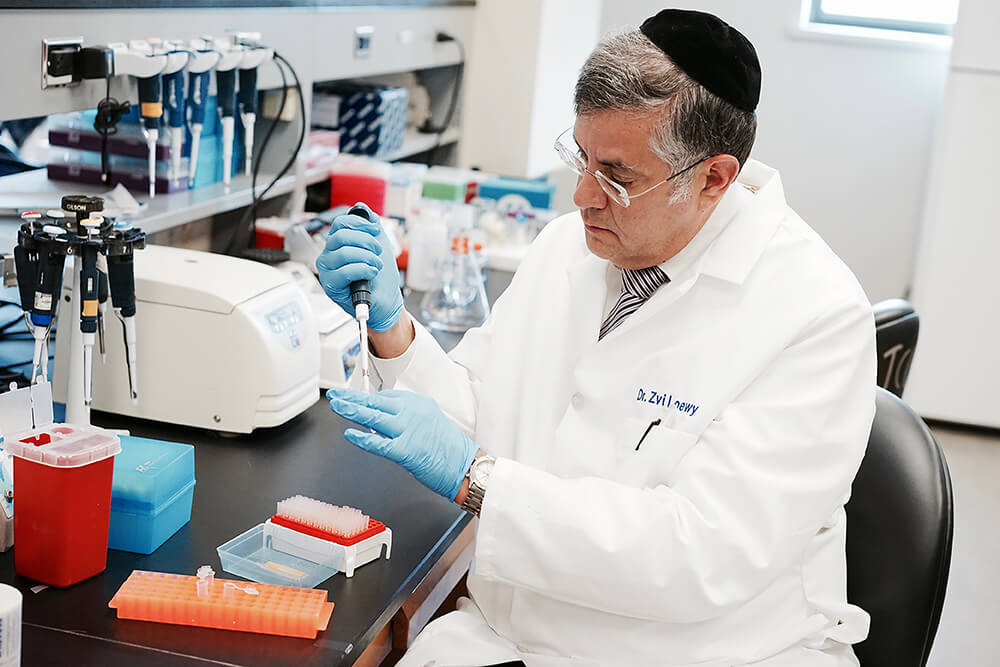News
What You Need to Know About COVID-19 Testing
Touro Professor Dr. Zvi Loewy Offers Expert Perspective on Antibody Testing, Vaccines and More

As head of systems engineering at Roche Diagnostics, Dr. Zvi Loewy, now a professor and associate dean for research at Touro College of Pharmacy, led the effort to develop the first automated platform for running molecular diagnostic tests. He described his experience in the June issue of The Journal of Precision Medicine, which is devoted to COVID-19 testing. We asked Dr. Loewy about his work at Roche, COVID-19 and antibody testing, and when we can expect a vaccine against the virus.
When you were at Roche, you developed an automated diagnostic testing platform that is now used for COVID-19 testing. Can you explain it?
The system is based on polymerase chain reaction, PCR for short, which uses a series of temperature cycles to make multiple copies of a specific DNA or RNA sequence. Early PCR testing required lots of human intervention, which limited its use outside of research settings. The system we developed can perform the necessary steps automatically, and can process 960 samples at once, with results in eight hours. The U.S. Food and Drug Administration has approved tests that run on the system for HIV, tuberculosis and many other pathogens, and approved a test for SARS-CoV-2, the virus that causes COVID-19, in mid-March.
What is an antibody test? Should anyone get one?
Also called serological tests, these check a person’s blood for antibodies to COVID-19. If a person tests positive, they have been exposed to the virus, while a negative test means they haven’t been exposed. Public health authorities are now trying to perform as many antibody tests as possible, which gives them an idea of the level of exposure to the virus within the population.
How reliable is COVID testing and antibody testing?
COVID-19 tests—like the Roche test—are used to determine if a sick person has the virus. These test a sample that’s taken by swab from the back of a person’s throat, and are extremely reliable, as long as the sample was taken correctly. There have been problems with the reliability of antibody testing, largely because several products reached the market without FDA review.
How can someone be sure they’re getting a reliable test?
Ask if the test has been submitted for review to the FDA, and if it has been approved by the FDA. This is indicative of the comprehensiveness of the data supporting the validity of the test.
If I test positive, does that mean I’m immune?
We still don’t know whether people who make antibodies to COVID-19 will be immune to infection. Even if you have a positive antibody test, you should remain vigilant with social distancing and mask use.
Do you see a vaccine in the near future?
There is tremendous effort being dedicated to vaccine development in large global pharmaceutical companies as well as in biotechnology companies. I believe we will start to see a vaccine emerge by the end of this calendar year.
You hold more than 25 patents. Of which are you most proud?
Probably the early ones that focused on identifying variation in the human genome. The early work on DNA identity has served as the foundation for the exciting field of pharmacogenomics, which explores how genes affect drug response.
What did you do before coming to Touro?
I was a senior executive in the pharmaceutical / biotechnology industry. I was also involved in several biotechnology start-ups and held an adjunct appointment at Touro’s New York Medical College.

